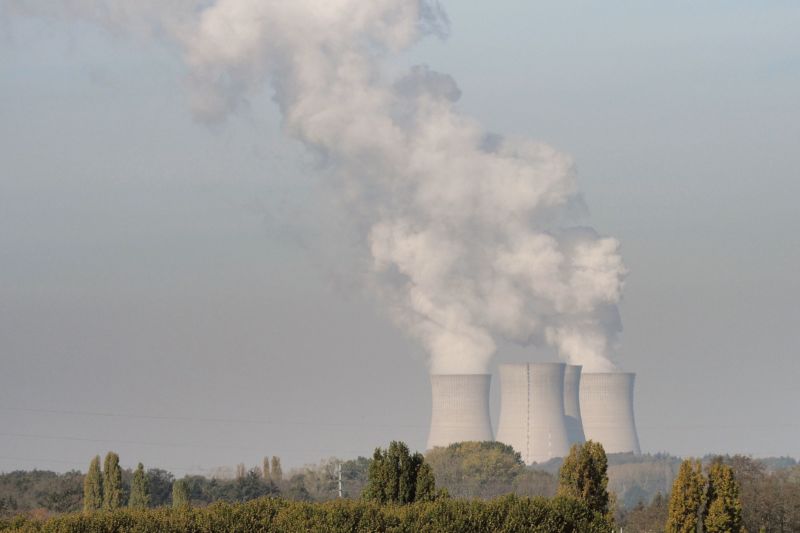
France is planning to build up to 14 nuclear reactors in an attempt to shore up the country’s aging nuclear fleet while also reducing the country’s carbon emissions. And while the first reactors won’t open for years, the announcement could serve to undercut Russia’s attempts to keep Europe dependent on natural gas.
President Emmanuel Macron announced the decision last week, saying that state-backed Électricité de France, also known as EDF, will build six new plants starting in 2028, with the option to build another eight by 2050. EDF estimates that six next-generation pressurized water reactors will cost around €50 billion ($57 billion). The first could be commissioned as early as 2035.
The move is a sharp reversal of Macron’s earlier pledge to close several reactors over the next decade or so. National politics almost certainly play a role—the nuclear power sector in France employs around 220,000 people, according to one estimate. “What our country needs is the rebirth of France’s nuclear industry,” Macron said at a nuclear turbine factory that EDF had just purchased from GE. “The time has come for a nuclear renaissance,” he said.
Macron also said that EDF will build a prototype small modular reactor, or SMR, by 2030. SMRs are fission reactors that are designed to be built in a factory and transported to their final destination. They generally produce less than 1 MW of power and are intended to be more economical than traditional reactors, which are constructed on-site. EDF will face stiff competition from numerous companies, from heavyweights like Westinghouse to startups like NuScale and Chinese firms like China Huaneng Group, which are pushing to commercialize SMRs.
Nuclear powerhouse
France is home to one of the world’s largest nuclear fleets—with 56 reactors, it’s second only to the US. Last year, nuclear power generated two-thirds of the country’s electricity, providing a striking contrast to neighboring Germany, which is on track to shut down its last nuclear power plant by the end of this year.
France began building nuclear power plants in earnest in the 1970s in response to the oil crisis, starting construction on nine reactors in 1975 alone. Not only did government policy help remake the French energy sector, but it also transformed the French economy by facilitating the development of the TGV, the all-electric, high-speed trains that have become a symbol of French engineering.
The 1970s building spree means that many of France’s reactors are reaching the end of their expected lives. The new reactors would help maintain the country’s nuclear power output, but since they won’t come online for more than a decade, there could be a significant gap if too many plants are retired. Maintenance problems knocked up to 30 percent of the French fleet offline this winter as EDF battled cracks and corrosion in pipes in some of its plants. That forced France to boost its reliance on coal, both from power plants within the country and from German electricity imports.
To forestall the retirements, Macron said he would seek to extend the lifespan of some nuclear reactors from the current 40 years to more than 50 years if it could be done safely.
Geopolitical considerations
France’s new plans were announced less than two weeks after the EU announced that nuclear power would be considered “sustainable,” a decision that was subject to intense lobbying by the French government.
It also comes at a time of heightened tensions with Russia and its president, Vladimir Putin. Russia has flooded the EU with cheap natural gas, leaving the bloc dependent on the country for much of its energy. In 2020, the EU received more than 40 percent of its natural gas from Russia. The Nord Stream 2 pipeline, which could double Russian exports to the region, appears likely to increase the bloc’s dependence. Macron’s announcement, while possibly coincidental, could signal that France is interested in taking over as Europe’s power center.
Read More:France to cut carbon emissions, Russian energy influence with 14 nuclear reactors
2022-02-14 18:23:45
